Renewed fighting between Ukrainian troops and Russia-backed separatists kills at least 10
The warring sides blame each other for the spike in hostilities, the worst in months.
At least 10 people have been killed and dozens wounded in eastern Ukraine this week amid a new outburst of fighting between government troops and Russia-backed separatist rebels. The warring sides blame each other for the spike in hostilities, the worst in months.
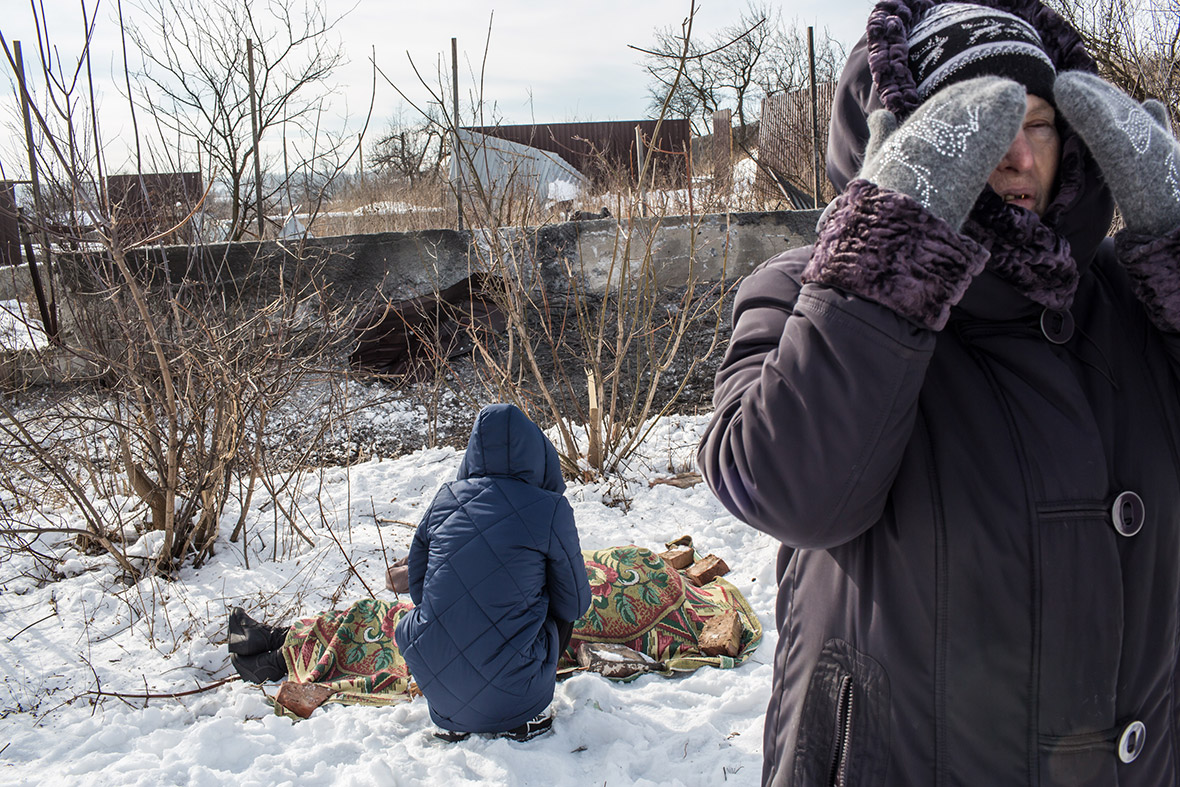









Heavy shelling of government-held Avdiyivka, just north of the rebel stronghold city of Donetsk, began over the weekend and persisted into early Wednesday (1 February). Fighting around Avdiyivka has cut water and power supplies for most of the town and it was left without heating amid a strong cold snap, with temperatures as low as minus 18 Celsius (0 Fahrenheit).
An Associated Press reporter outside Avdiyivka saw a transporter carrying Grad multiple missile launcher with empty rounds drive away from the front line. Grad is among the heavy weaponry that both warring parties committed to pull back when they signed a cease-fire agreement in Minsk in 2015.





In Donetsk, local residents reported incessant outgoing and incoming artillery salvos heard throughout the night and in the morning, an intensity that the city has not seen in months.
A funeral ceremony was held in central Kiev for seven Ukrainian servicemen killed in recent fighting in the country's eastern Donetsk region. Servicemen's bodies were carried to a monument to independence in the capital where hundreds of residents gathered to pay their respects.
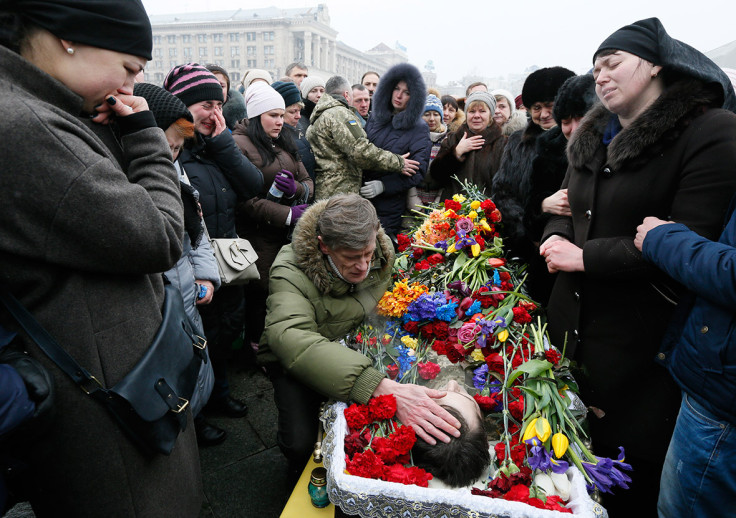
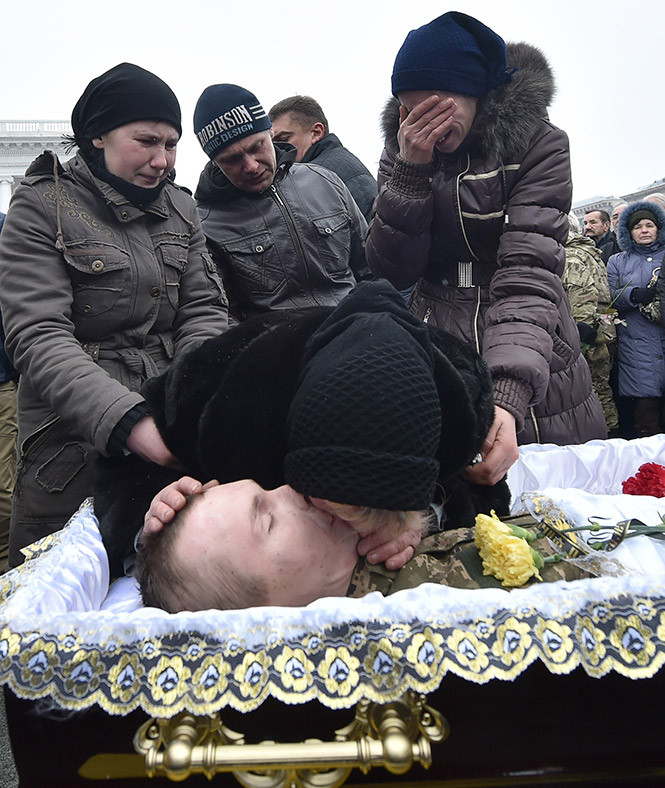
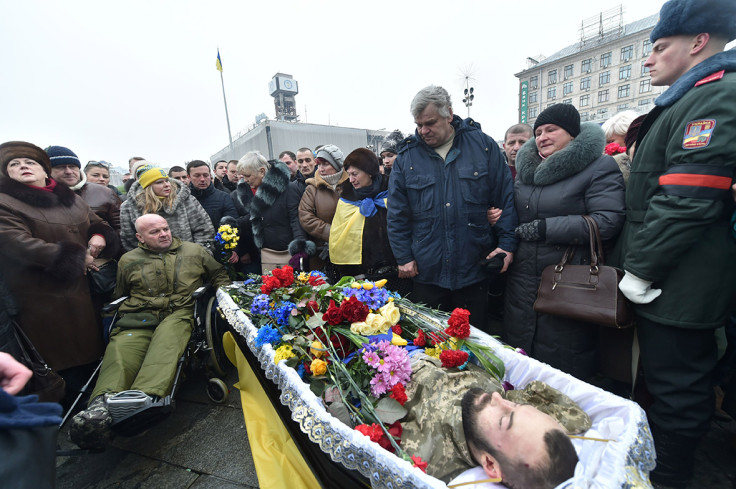
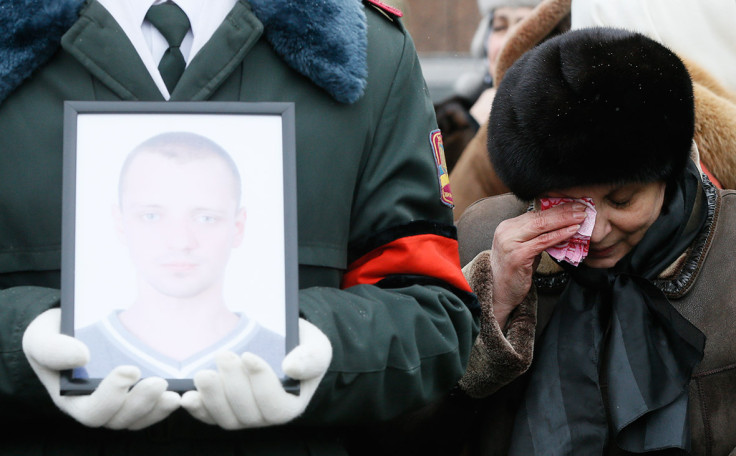
Close to 10,000 people have been killed since fighting between Ukrainian troops and rebels seeking independence from Kiev erupted in April 2014. A pact reached nearly two years ago in Minsk, Belarus, called for a ceasefire, for heavy weapons to be pulled back from the front lines and for a political resolution of the conflict, but the agreement has been observed only fitfully and skirmishes and artillery fire have persisted.
Nato secretary general Jens Stoltenberg called on Russia to use its "considerable influence" with rebels in eastern Ukraine to end what he described as "the most serious spike in violations" of a shaky truce there in a long time. Speaking to reporters, Stoltenberg said the ceasefire in eastern Ukraine has been violated more than 5,600 times in recent days.
What sparked the recent escalation is unclear. But each side could find negotiation benefits in it. The Ukrainian government, concerned that the new US administration might take a comparatively soft line on Russia, could point to the escalation as evidence that Russia cannot be trusted. That prospect was acknowledged by President Vladimir Putin's foreign affairs adviser Yuri Ushakov. "Kiev is trying to use the fighting it provoked itself as a pretext to refuse to observe the Minsk agreement and blame Russia," he told reporters.
But by showing the strength of the rebels and their Russian backers, the fighting could send a signal to Washington that Moscow holds power in the region and the United States should offer concessions to Moscow if it wants peace in Ukraine. The escalation "seems to be another reason for the soonest possible resumption of dialogue and cooperation between Russia and America," Kremlin spokesman Dmitry Peskov said.
© Copyright IBTimes 2025. All rights reserved.






















